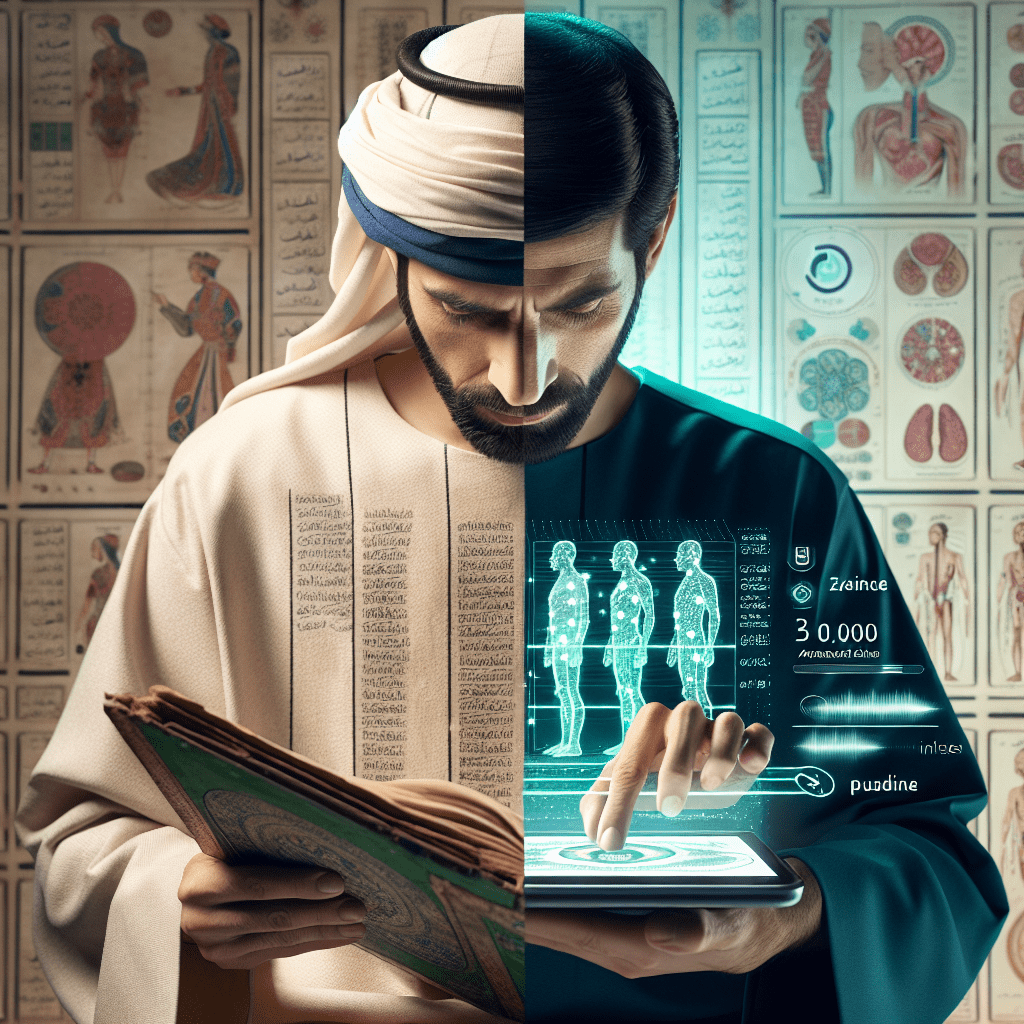In today’s fast-paced world, the one-size-fits-all approach to healthcare is rapidly becoming obsolete. As we move toward a more personalized era of wellness, constitutional health assessment has emerged as a vital tool for understanding our unique bodily needs. This approach, deeply rooted in Eastern healing philosophies, provides a framework for deciphering the intricate language of our bodies—a language that speaks through constitutional symptoms—a language that speaks through symptoms, patterns, and responses that vary dramatically from person to person.
Constitutional health analysis recognizes that each individual possesses a unique biological makeup that influences how they respond to different foods, environments, stressors, and treatments. This perspective aligns perfectly with the growing desire among health-conscious individuals to embark on personalized wellness journeys rather than following generic health advice. By acknowledging these individual differences, constitutional assessment creates a roadmap for tailored health strategies that work with your body’s natural tendencies rather than against them.
The beauty of this approach lies in its holistic nature. Unlike conventional medicine that often treats symptoms in isolation, constitutional health analysis examines the entire person—physical characteristics, emotional tendencies, digestive patterns, and energy levels—to create a comprehensive picture of one’s health status. This comprehensive health analysis provides insights that go beyond surface-level symptoms, revealing underlying imbalances that might otherwise remain hidden.
For those seeking natural approaches to wellness, constitutional assessment offers a refreshing alternative to conventional methods. It empowers individuals to take an active role in their health by providing personalized insights that make intuitive sense within the context of their lived experience.
The Technological Revolution in Health Analysis
The marriage of ancient wisdom and cutting-edge technology has sparked a revolution in health analysis. Artificial intelligence and machine learning are now powerful allies in decoding the body’s complex signals, transforming how we understand and approach personal wellness.
AI systems can process vast amounts of health data at speeds and accuracy levels impossible for human practitioners alone. These advanced algorithms detect patterns in our health information that might escape even the most experienced healthcare provider. As one recent study noted, “AI algorithms analyze medical images and clinical data to detect diseases earlier and with higher precision,” offering a level of diagnostic accuracy that was once unimaginable.
This technological evolution isn’t replacing traditional wisdom—it’s enhancing it. AI in TCM demonstrates how ancient wisdom meets modern technology to transform health journeys. AI-powered health analysis tools can now integrate insights from Eastern medical traditions with modern clinical data, creating a more comprehensive understanding of individual health patterns. For example, AI systems can analyze pulse patterns according to traditional Eastern medicine principles while simultaneously considering modern biomarkers, creating a more nuanced health analysis than either approach could provide alone.
The real game-changer in this technological revolution is personalization. AI doesn’t just process health data—it learns from it, creating increasingly tailored recommendations as it gathers more information about an individual. As one healthcare AI researcher explained, “AI-driven systems can analyze vast amounts of patient data to provide personalized diagnoses and treatment recommendations,” making health guidance more relevant and effective for each person.
Real-time monitoring represents another frontier in AI-enhanced health analysis. AI predictive analytics in healthcare involves analyzing both historical and real-time patient data to anticipate future health events. Wearable devices combined with AI algorithms can continuously track vital signs, sleep patterns, activity levels, and even stress indicators, providing ongoing health analysis rather than point-in-time assessments. This continuous monitoring allows for early detection of subtle changes that might indicate developing health issues, enabling preventive intervention before problems escalate.
For those concerned about the impersonal nature of technology, it’s worth noting that AI health analysis tools are designed to enhance the human connection in healthcare, not replace it. By handling data processing and pattern recognition, AI frees healthcare providers to focus on the interpersonal aspects of care that machines cannot replicate—compassion, intuition, and personalized communication.
Emerging Methods in Comprehensive Health Assessment
The integration of traditional frameworks with computerized diagnostics has given rise to innovative assessment tools like the Sasang Health Index, representing a significant advancement in comprehensive health analysis. This approach draws from the ancient Korean medical system of Sasang constitutional medicine, which categorizes individuals into four constitutional types based on their physiological and psychological characteristics.
What makes the Sasang Health Index particularly powerful is its multi-dimensional approach to health analysis. Unlike conventional medical assessments that might focus primarily on physical symptoms, this system evaluates physical attributes, psychological tendencies, and constitutional patterns simultaneously. When enhanced by AI capabilities, these assessments can detect subtle connections between seemingly unrelated health factors, providing insights that might otherwise remain hidden.
Machine learning algorithms have proven particularly valuable in this area. According to recent research, “A machine learning-based approach for herbal formulae recommendation integrates clinical data, Sasang constitutional types, and expert knowledge to predict” optimal treatments for individuals. This integration of traditional wisdom with advanced technology creates a more nuanced understanding of individual health needs than either approach could achieve alone.
The benefits of these personalized health assessments extend beyond mere diagnosis. By understanding an individual’s constitutional type and unique health patterns, practitioners can develop targeted intervention strategies that work in harmony with that person’s natural tendencies. This tailored approach leads to better patient outcomes, improved treatment adherence, and fewer adverse reactions.
These comprehensive assessment methods also excel at preventive care. By identifying constitutional imbalances before they manifest as disease, these systems help individuals make lifestyle adjustments that support their unique health needs, potentially preventing illness rather than merely treating it after it occurs. As one practitioner noted, “This suggests that personalized medicine approaches, such as Sasang Typology, may enhance the effectiveness of herbal treatments,” demonstrating the practical benefits of these assessment frameworks.
For health-conscious individuals seeking natural approaches to wellness, these comprehensive assessment methods offer a welcome alternative to conventional medical approaches. Rather than treating the body as a collection of separate systems, they recognize the interconnected nature of physical and mental health, providing guidance that addresses root causes rather than isolated symptoms.
Evaluating Health Technology Effectiveness
As innovative health analysis technologies continue to emerge, Health Technology Assessment (HTA) plays a crucial role in evaluating their effectiveness, safety, and economic value. This systematic approach ensures that new health technologies deliver meaningful benefits while meeting rigorous standards for both clinical outcomes and cost-efficiency.
HTA examines health technologies through multiple lenses following good practices for assessment guidelines, considering not only their technical capabilities but also their accessibility, usability, and alignment with patient needs. This multifaceted evaluation helps distinguish truly valuable health analysis tools from those that offer more promise than practical benefit. As healthcare systems worldwide face resource constraints, this economic assessment becomes increasingly important for sustainable implementation of new technologies.
The assessment process for health analysis technologies involves rigorous testing against established clinical standards, ensuring that AI-powered diagnostic tools meet or exceed the accuracy of traditional methods. According to recent findings, “Evaluating members’ skills through digital literacy assessments help health plans tailor care, prevent negative outcomes, and reduce health equity gaps,” highlighting how proper assessment enhances the real-world value of these technologies.
Security and privacy considerations form another critical component of health technology assessment. As health analysis tools collect increasingly detailed personal information, protecting this sensitive data becomes paramount. A comprehensive review noted that assessment must focus on “ethical and safety facets, including health technology-related risks, users’ safety and well-being risks, security and privacy,” ensuring that innovation doesn’t come at the expense of patient confidentiality.
For health-conscious consumers, HTA provides valuable guidance when navigating the growing marketplace of health analysis tools. By identifying technologies that have undergone rigorous evaluation, individuals can make more informed choices about which assessment methods deserve their trust. This discernment becomes especially important as the number of available health technologies continues to expand rapidly.
From a holistic health management perspective, properly assessed technologies offer particular value when they bridge traditional wisdom with modern innovation. Technologies that successfully integrate Eastern medical principles with contemporary analysis methods create a more comprehensive approach to wellness that honors ancient knowledge while embracing scientific advancement.
The Future of Personalized Wellness
As we look toward the horizon of healthcare, the integration of AI-powered health analysis technologies into mainstream practice promises a future where personalized wellness becomes the standard rather than the exception. This evolution represents not just a technological shift but a fundamental reimagining of how we approach health and wellbeing.
Education stands at the forefront of this transformation. Healthcare providers across disciplines are increasingly incorporating these advanced analysis methods into their training, creating a new generation of practitioners equipped to blend traditional wisdom with technological innovation. This educational evolution ensures that the human element remains central even as AI capabilities expand, maintaining the compassionate core of healthcare while enhancing analytical precision.
Patient empowerment represents another significant dimension of this future landscape. Health data analysis tools are transforming how individuals engage with their personal wellness journey. As health analysis technologies become more accessible, individuals gain unprecedented insight into their own constitutional patterns and health needs. This knowledge transforms passive patients into active participants in their wellness journeys, making informed decisions based on personalized data rather than generic advice. As one wellness expert observed, “A wellness assessment provides insights into what employees need most, whether it’s stress management, physical activity tracking, mental health resources,” highlighting how personalized analysis leads to targeted solutions.
The preventive potential of advanced health analysis cannot be overstated. By identifying subtle imbalances before they manifest as disease, these technologies shift the focus from treatment to prevention, potentially reducing healthcare costs while improving quality of life. Early detection through continuous monitoring allows for intervention at optimal moments, when small adjustments can prevent larger health challenges.
Cultural sensitivity in health analysis represents another promising frontier. Technologies that incorporate diverse medical traditions create more inclusive approaches to wellness that resonate across cultural backgrounds. This inclusivity ensures that personalized health recommendations remain relevant and accessible to individuals from various traditions and belief systems.
In this evolving landscape, platforms that seamlessly integrate Eastern medicine wisdom with AI innovation occupy a unique position. By honoring time-tested principles while embracing technological advancement, these approaches offer a balanced path forward that neither clings rigidly to tradition nor abandons valuable ancient insights in pursuit of novelty.
The revolution in health analysis through AI isn’t just changing how we treat illness—it’s transforming how we understand wellness itself. By decoding the body’s hidden signals with unprecedented precision and personalization, these technologies invite us to embark on health journeys tailored specifically to our unique constitutional patterns, guided by both ancient wisdom and cutting-edge innovation. In this new paradigm, wellness becomes not a generic destination but a personalized path as unique as each individual who walks it.



